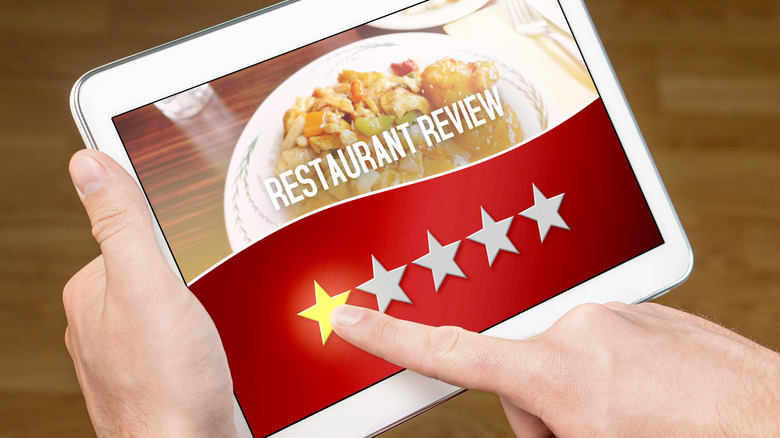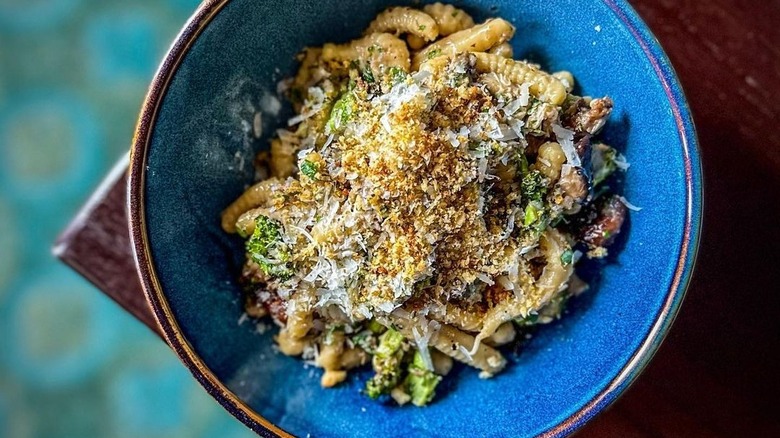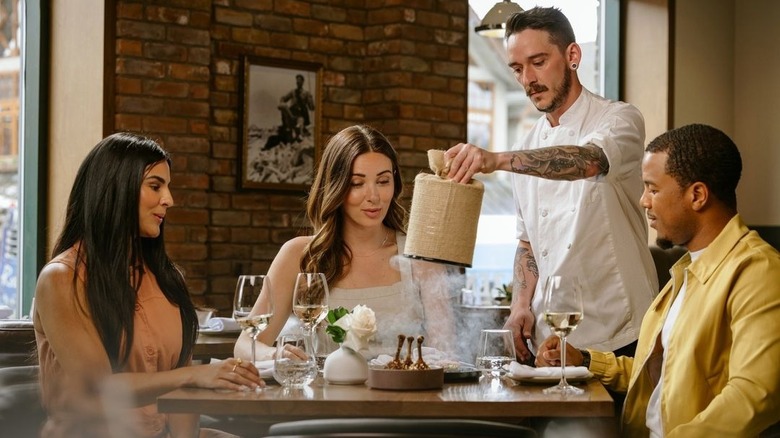Chefs Have Mixed Feelings About Giving Restaurant Critics Special Treatment
Food critic Anton Ego becomes a shadowy villain in the animated movie Ratatouille, saying "I don't like food ... I love it! And if I don't love it, I don't swallow!" And even though the character may be dramatic, the movie's portrayal of a food critic might not be too far off from real life.
Food reviews can be found as early as the 19th century, in Gourmand's Almanac, and continue today in online commentary. Let's face it — everyone has a palate, and everyone has an opinion when it comes to food. So, when a critic darkens a chef's doors, you can imagine how nerve-wracking it may be for a chef and their team. Scathing reviews, like glowing ones, can leave a mark.
Whether or not to give food critics special treatment is a question that's haunted chefs for years, and answers are mixed. In a report published by the Food Network, 71% of chefs surveyed agreed that they do in fact roll out the red carpet for critics — at least, "when they spot them." So, Tasting Table scoured the land from Canada to the Caribbean to put these numbers to the test. Chefs had a lot of things to say.
In favor of special treatment of critics?
Executive Chef Thomas Tuggle, at The Harpeth Hotel in Franklin, Tennessee, says TV and movie chefs can get a little tongue-in-cheek when talking about food critics. The treatment of critics in shows like "Chef," "Burnt," and "Ratatouille" is what Tuggle calls sheer entertainment — not reality. In real life, showing critics hospitality is paramount, according to Tuggle. "I, as chef, want to provide them with that experience so they can share it in whatever means of media they use," he says. "At the end of the day, it all boils down to personalized care."
Austin Sumrall, chef and co-owner of White Pillars Restaurant and Lounge in Biloxi, Mississippi, concurs. "If it is a food critic that I really respect, I'll bend over backward for them. I think there are food critics and writers that really push hospitality forward and are a part of the fabric of the industry," Sumrall says. In the same breath, though, he says that some who call themselves critics actually fall into the "food influencer" category. "We get emails and Instagram messages all the time wanting to trade food and services for a 'review'. Our policy is hard no on those. There has to be some form of legitimacy," he contends.
Opposed to special treatment of critics?
On the flip side, some chefs avoid favoritism. Well, for the most part. Executive Chef Edwin R. Gallardo, who oversees four restaurants at Seven Stars Resort & Spa in the Turks and Caicos admits he sometimes offers preferred seating, personal greetings, and perhaps an amuse-bouche to critics. Outside of that, however, he tries to treat all guests with "the same equally high level of service," he says. "After all, whether it's a TripAdvisor review or a post on their social media page, every guest is a potential food critic."
Much like Gallardo, Chef Irv Miller at Jackson's Steakhouse in Pensacola, Florida, says he wants his team to put their best foot forward no matter what, which inevitably gives a critic "an authentic dining experience." However, he says VIPs are a different story. Miller prefers "to provide that little extra touch to our recognized customer base" that includes family and friends, among others.
Chef Scott Hergott, at Pursuit Collection in Canada, takes a stricter approach. "You are only as good as your last plate," he says. Hergott's sentiment is embraced by chef Dan Jiricka, who runs one of the collection's Banff restaurants, Brazen. Jiricka compares a table of guests to a baby who needs food, shelter, human contact, and love. "If those necessities aren't given, that table dies," he says. But, what if his "baby" is panned by critics? He laughs, adding, "I'll just make a new one."


